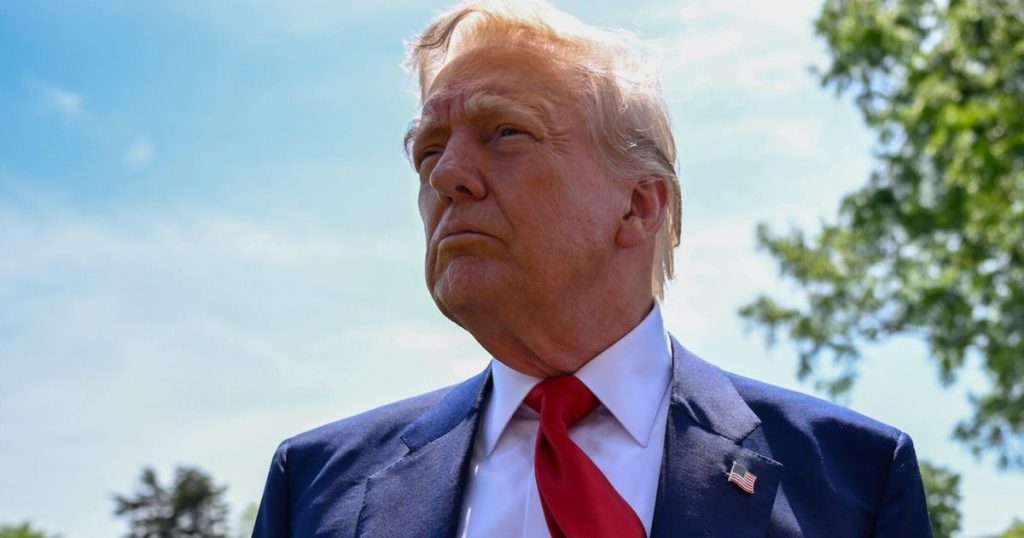President Trump’s budget proposal would cut 22% of non-defense discretionary spending next year while significantly increasing defense spending, according to a senior official with the Office of Management and Budget and information provided by the White House.
The president’s proposed budget for fiscal year 2026 would slash non-defense discretionary spending by $163 billion from current levels, the official told reporters on a conference call Friday, while defense spending would surpass $1 trillion for the first time ever. The president’s budget proposal, along with efforts by the White House and Republicans to claw back some federal funding already authorized by Congress, would solidify cuts championed by the White House’s Department of Government Efficiency, known as DOGE.
“This is a pretty historic effort to deal with the bureaucracy that you have heard and seen such action from our administration with DOGE to be able to deal with the bureaucracy that we believe has grown up over many years to be entrenched against the interests of the American people,” the senior OMB official told reporters on a conference call Friday, speaking on condition of anonymity.
The president’s proposed budget would put all discretionary spending at $1.7 trillion, down from $1.83 trillion in the current fiscal year, and increase defense spending by 13%, the official said. The president’s budget recommendation would have the lowest non-defense discretionary spending since 2017, or, adjusted for inflation, the lowest non-defense discretionary spending since 2000, the official said.
The White House isn’t yet saying what their deficit or revenue projections will be. The president’s recommendation is in the hands of the Republican-controlled Congress, which is responsible for crafting and passing a budget.
On average, agencies would see about 35% in cuts, although some entities, like the Department of Homeland Security, would see more funding under the proposal. Entities including the State Department and Department of Health and Human Services would see significant cuts under the president’s proposal.
The senior OMB official said the president’s budget proposal includes “an enormous cut to foreign aid, but one that still preserves substantial presence” to provide for “targeted” aid when it’s in the interest of the United States.
But spending on things like Social Security, Medicare and Medicaid continue to be the biggest drivers of the federal deficit and national debt, and those programs, along with interest on the debt, are taking up an increasingly large piece of the federal spending pie.
A senior administration official said the president has been “very, very involved” in the budget proposal process.
“Obviously, this president’s budget, he’s very, very involved throughout the process,” the official told reporters on the conference call, speaking on condition of anonymity. “We had four years of budgets to build on and come into office, see the damage that the Biden administration has wrecked on our fiscal house, and to make updates and incorporate many of the changes that have been identified from DOGE and come to you with a proposal.”
contributed to this report.


